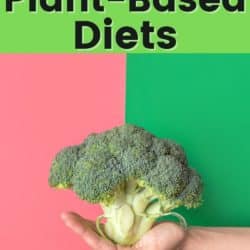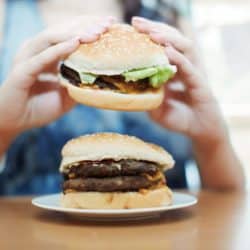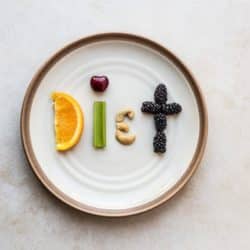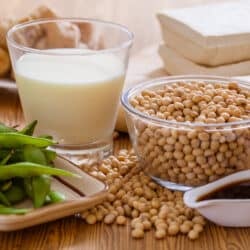7 Vegan Diet Myths (Read This Before You Go Vegan)
Nutrition may be one of the most hotly debated topics both online and in the real world. It can be very confusing to know which diet is best and which one will work for you. In this article, I share vegan diet myths about a plant-based approach that just aren’t true.
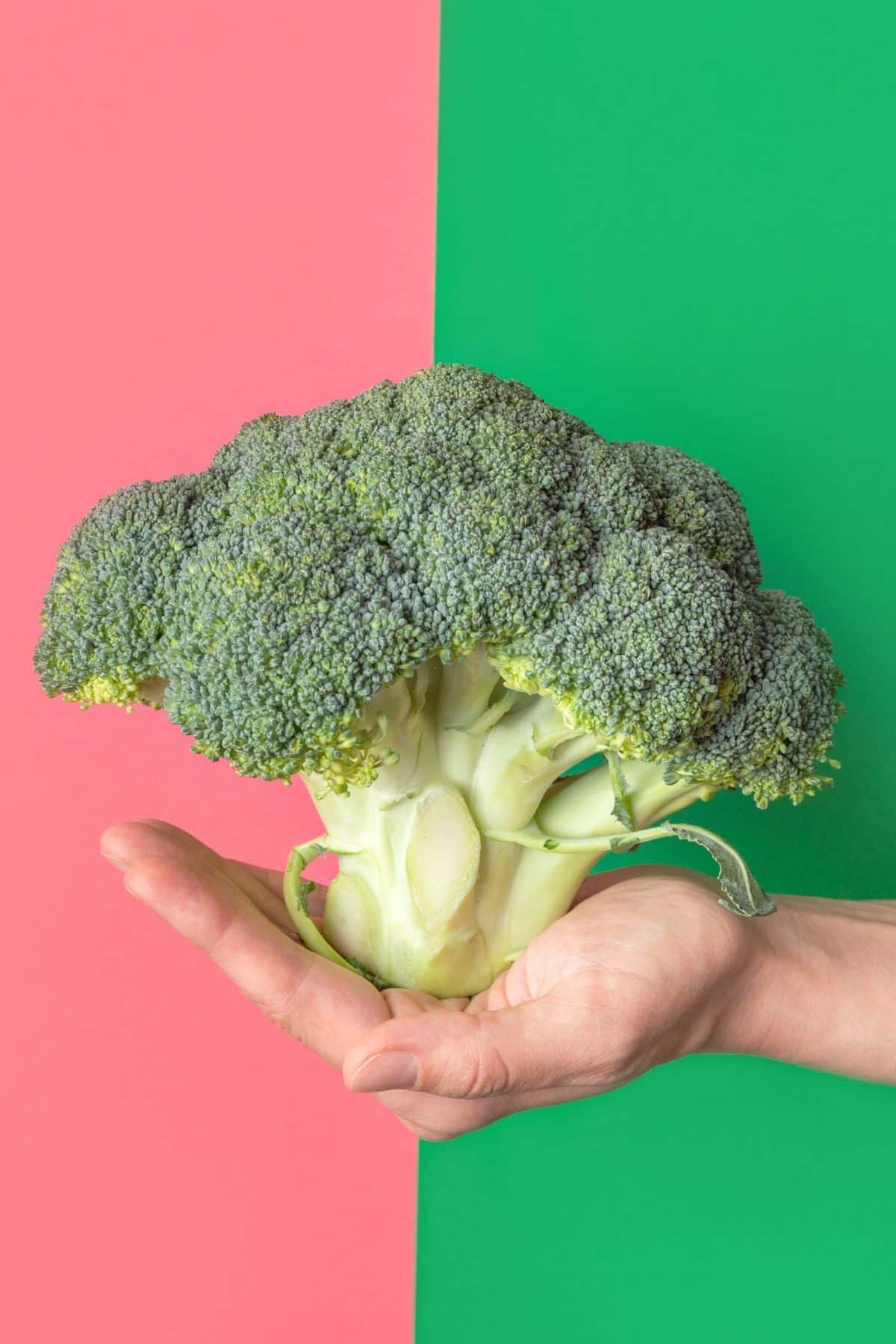
Are Vegan and Plant-Based Diets the Best?
Myths around vegan and plant-based diets are really strong when it comes to the pros and cons of a plant-based diet compared to eating meat. The topic is hotly contested and people argue very strongly in favor of one opinion over another.
Some of the questions include: do we really need to rule meat out of our diets in order to be healthier? And, is eating meat harmful to the environment?
The truth is that the answers to questions like these are not always clear-cut and the evidence is continually evolving.
So, in this article, we will take a look at some of the common myths surrounding plant-based eating and vegan diets and how they stack up against scientific evidence.
7 Vegan Myths
1. You have to be 100% vegan to get the health benefits
Many people confuse plant-based diets with veganism or vegetarianism. But, each is distinct from the other.
Vegans don’t eat any animal products at all, including dairy and eggs – or use any products that come from animals, such as leather. Indeed, veganism could be described more as a lifestyle choice than merely a diet.
Vegetarians, on the other hand, usually eat eggs and dairy, but don’t eat poultry, meat, or fish.
But a plant-based diet doesn’t rule out any particular food group. Instead, it places the emphasis on consuming more whole plant foods, such as fruits, vegetables, nuts, legumes, and whole grains. While these would form the bulk of a plant-based diet, there is still room for animal foods, including lean meat, poultry, dairy, and fish (although most people do equate plant-based diets with vegan diets).
This is good news for those who would like to enjoy some of the health benefits of plant foods, but don’t yet feel ready to cut out meat altogether. And there is even research to support this approach.
A 2017 study of “flexitarian” diets – i.e. semi-vegetarian diets that sometimes include meat or fish – found that they offer many benefits similar to vegetarian or vegan diets. These include lower risks of heart disease and type 2 diabetes, along with better weight management.
Another case in point is the Mediterranean diet. Long revered for its numerous health benefits, it has been shown to help protect against certain cancers and lower the risk of cardiovascular disease. Yet while primarily plant-based, the Mediterranean diet does include moderate amounts of dairy, eggs, and fish, along with a small amounts of red and white meat.
So, if you’re looking to improve your health or try to reduce chronic disease, going vegan and avoiding all animal products doesn’t have to be the answer. You can still enjoy some animal products and, in fact, you may actually avoid certain vegan health risks by keeping some animal foods in your diet.
2. Eating plant-based will solve all of your health problems
There is no doubt that the plant-based approach to eating is a healthy one, as long as the focus is on plant foods that are whole and nutritious.
But this doesn’t mean that eating a plant-based or vegan diet will automatically make you healthier.
People tend to enjoy convenience foods – even plant-based ones – and many vegan or vegetarian processed foods are high in salt, sugar, and saturated fats.
The important thing is to distinguish between plant foods that are healthy and those that are not. The difference usually comes down to whether or not they are processed. Potato chips, some sugary cereals, and even French fries are all technically “plant-based”. But they are certainly not foods that promote good health. Neither are many meat replacement products that are often made with highly processed ingredients (see why fake meat is unhealthy).
Similarly, it is often touted that adopting a plant-based diet is the best way to lose weight. Yet it is very easy to consume far more calories than your body needs, even with plant foods… and especially if they are processed.
The answer is to try to use whole foods to create your own meat replacement products. Try making burgers with ingredients like chickpeas, black beans, and quinoa, for example. Or, try including shredded veggies in your regular hamburgers or meatloaf to increase your intake of plant foods.
Something else to look out for are plant-based milks. While these can be a healthy alternative to cow’s milk for many people – particularly those who are intolerant to dairy – some plant milks are made with added sugar to make them more palatable or other gums or preservatives to give them a better texture or longer shelf life.
Finally, remember that not all meat is unhealthy! Often, when you see meat compared unfavorably to plant foods, it is often red or processed meat that is under discussion. Yet – as can be seen from the Mediterranean diet – white meat, fish, and red meats can provide certain health benefits.
Even taking all these points into consideration, it is still important to realize that there is no diet that will solve all of your health problems and protect you fully against all diseases.
An actual plant-based diet rich in fruits, vegetables, whole grains, and some lean protein can reduce your risk of serious illness, including heart disease. Combined with a healthy lifestyle – including regular exercise – a healthy diet will give your natural immunity to common infections a boost, too!
3. Vegans should avoid cooking oils
There is a myth going around in some vegan and plant-based communities that all oils are unhealthy because they are not a whole food.
But, our bodies need the essential fatty acids from certain oils. They are “essential” because we can’t make them, and need to obtain them from food.
There are two types of essential fatty acid – linoleic acid, which is part of the omega-6 family, and alpha-linolenic acid, which is in the omega-3 family.
We need these nutrients in approximately a 1:1 ratio. The problem is that current dietary habits lead most people to consume far more omega-6 than omega-3 fats. This imbalance has been linked to all sorts of health issues, including obesity, cardiovascular disease, and cancer.
For this reason, it’s a good idea to balance the amount of oils containing omega-6 fatty acids you consume, with those containing omega 3.
Oils high in omega-6 fatty acids include:
- soybean oil
- safflower oil
- corn oil
- sunflower oil
You should also monitor the amount of these oils you are consuming through processed foods.
Oils high in omega-3 fatty acids include:
- flaxseed oil
- fish oil and oily fish (such as mackerel, sardines, and herring)
- walnut oil
Something else to consider with cooking oils is their smoke point – the temperature at which they start to break down.
As oils break down, they release free radicals along with a substance called acrolein. Both of these could be harmful to health.
Stable cooking oils that are also high in nutrients include:
- olive oil
- avocado oil
- safflower oil
- sesame oil
- ghee
- butter
- lard
See my full list of the safest cooking oils to use.
The myth that all cooking oils are unhealthy comes from a particularly fanatic sub-group within the plant-based community. The truth is that some cooking oils are very healthy (like olive oil) and some cooking oils are very unhealthy.
But, it is an untruth that all cooking oils are unhealthy simply because they are extracted and are not a whole food.
4. Animal foods are unhealthy
It is easy to believe that all animal products are unhealthy. This is because research comparing the diets of meat-eaters with plant-based eaters often highlights the health benefits to the latter.
But, a key fact here is that plant-based diets are usually compared to modern western diets. These tend to be high in processed meats and factory farmed meats. Very little attention is paid to the type and quality of the meat consumed. This is likely where some fundamental differences lie!
Across the world there exist certain cultures for whom meat is the dominant part of the diet. But these are not unhealthy people! Nor were our ancestors, who often relied heavily on meat as a source of nutrition.
The problem in the modern western world is that much of the meat we consume is processed in some way. It is produced in factory farms, genetically modified, and often laden with an array of chemicals, hormones, and antibiotics.
There is no doubt at all that a plant-based diet that limits these processed meats will be beneficial to our health. But that doesn’t mean that there is no place for high-quality, organic meat.
Should you choose to occasionally enjoy meat or animal products when following a plant-based diet, check that it is naturally fed, free from hormones and antibiotics, and sustainably raised. This also applies to foods like hot dogs and bacon, which should be minimally processed and uncured.
Far from being 100% unhealthy, these naturally raised meats are a good source of vitamins and minerals, along with healthy essential fatty acids. See where to find local grass-fed meat.
5. Veganism is better for the environment
The thought that a vegan diet is always better for the environment is a widely held belief but the truth is not as clear-cut as it might seem.
The premise is that the production of plant-based foods has a smaller environmental footprint than that of animal products. And, it is certainly true that the rearing of meat for food – particularly beef – makes an enormous contribution to the world’s greenhouse gas emissions. The meat industry also uses enormous land and water resources, while simultaneously damaging the environment.
But not all plant-based foods are harmless in this regard.
Fruits and vegetables are often imported via air so that consumers have access to a variety of produce at all times, regardless of seasonal availability. This significantly increases greenhouse gas emissions too.
A UK study found that asparagus consumed in the country was actually imported by air from Peru, giving it the highest environmental impact of all the fruits and vegetables it assessed.
Avocados – the staple food of the plant-based diet – require enormous amounts of water to grow. And growing mushrooms – often enjoyed as a meat replacement – has been shown to emit 2.13-2.95kg of CO2 per kilo.
In addition to limiting meat or purchasing locally-grown grass-fed meats, we also need to buy plant-based foods responsibly if we want to make a positive impact on the environment. This means buying only what we need from sustainable and local resources and only choosing items that are in season, rather than crops that have been imported out of season.
6. Your diet dictates your identity
Not only is it incorrect that your diet dictates your identity, but it can actually be quite a harmful way to look at your relationship with food.
You may be identifying closely with your diet because you are proud of your food choices. And, of course, if you are following a healthy regimen and doing what you can to reduce the impact food has on our environment, then you have plenty to be proud of!
But it can become very problematic socially. Many vegetarians, vegans, and meat-eaters tend to have strong opinions about their food choices – and strong disagreements when their opinions differ. Being identified by your diet can set you apart from others. It can also make it harder to listen to an opposing point of view.
Perhaps a better way to look at it is that by trying new foods – particularly foods that are culturally different than those you are used to – you can positively shape your identity and worldview.
Another healthy way to look at diet is to consider all of the foods that you do eat, not the ones that you don’t. Read more about the dangers of orthorexia including my experience.
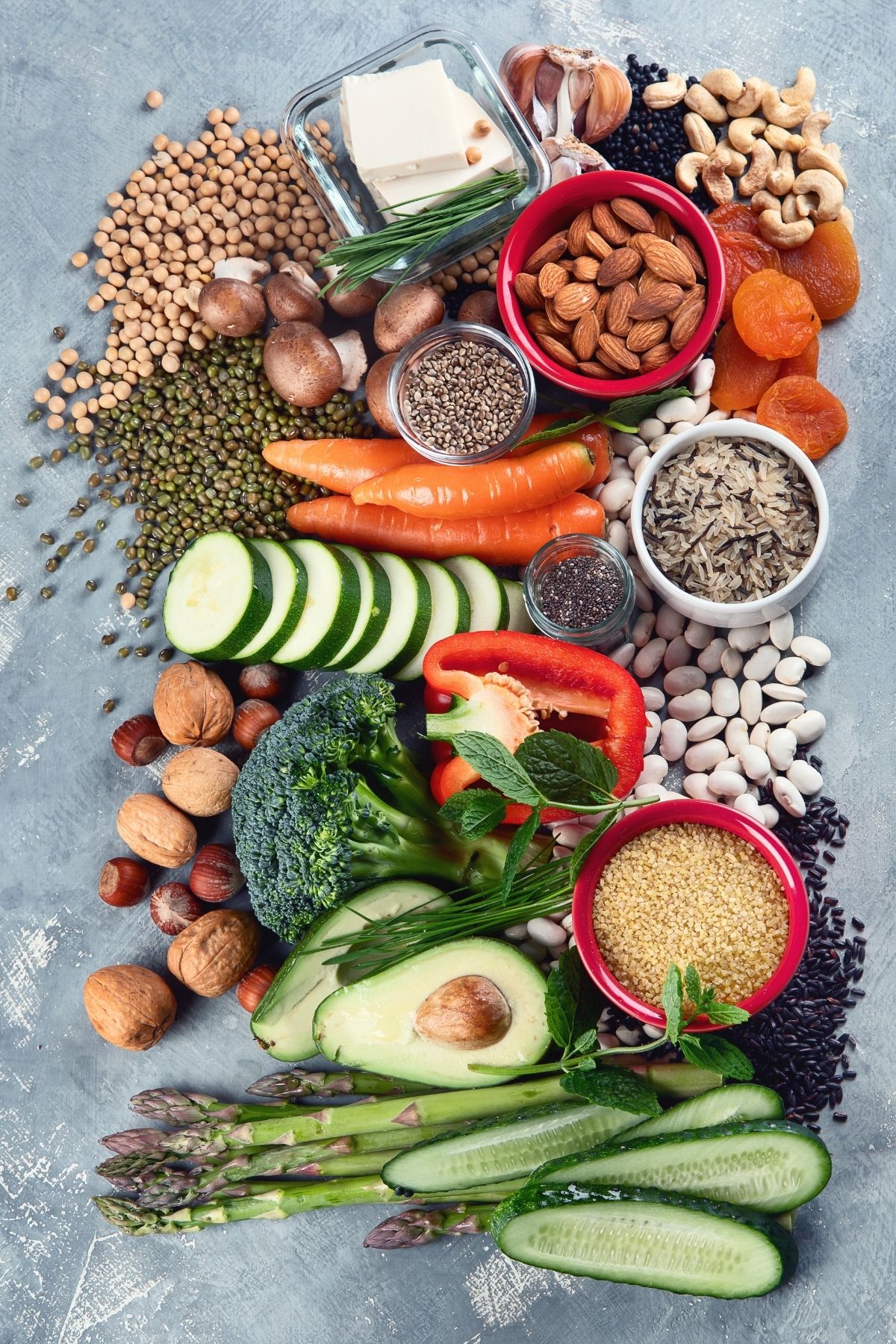
7. Everyone thrives on a plant-based diet
A plant-based diet clearly has many benefits and because it is less restrictive than veganism or vegetarianism, it is easier for most people to adopt. That being said, it may not be appropriate for everyone and there are certain conditions that may make consuming meat more desirable.
One such condition is when the gut microbiome (its collection of bacteria, fungi, and other microbes) is low on bacteria producing the vitamin K2. K2 is important for supporting skeletal and cardiovascular health and can also protect against some cancers.
Low levels of the bacteria that produce K2 can be caused by several factors, including genetics and the use of antibiotics. And the problem is that this vitamin is almost exclusively found in animal products, not plant foods. This means that a low meat diet can cause levels to drop worryingly low.
A similar problem occurs with people who struggle to convert the beta-carotene in plant foods into vitamin A that their bodies can use.
Vitamin A in animal foods comes in the form of retinoids that don’t need to be converted. This means that those who have difficulty in converting plant-based beta-carotene could very easily become deficient in vitamin A if they consumed little to no meat in their diets.
Whilst there are other conditions where meat may be an important part of the diet – and it certainly isn’t true that everyone thrives on a plant-based diet – these are generally the exceptions to the rule.
If you have any concerns about potential deficiencies arising from a plant-based diet, the best option is to speak to a medical professional qualified in nutrition. Some simple adaptations may be all that’s needed to allow you to safely reduce your meat intake and consume more plant-based foods.
Read more about my experience being an ex-vegan including the signs and symptoms of an unhealthy vegan.
More Diet Resources You Might Like
Conclusions
As we have seen, there are lots of inaccuracies and half-truths linked to the plant-based diet. I hope this article has helped separate some of the facts from the fiction and empowered you to make the right food choices for your health and the environment.
Don’t forget to join my newsletter list to get exclusive clean eating recipes and tips. The newsletter is 100% free with no spam; unsubscribe anytime.
About the Author: Carrie Forrest has a master’s degree in public health with a specialty in nutrition. She is a top wellness and food blogger with over 5 million annual visitors to her site. Carrie has an incredible story of recovery from chronic illness and is passionate about helping other women transform their health. Send Carrie a message through her contact form.
Note: this post is for informational purposes only and is not intended as medical advice. Please consult your healthcare provider for recommendations related to your individual situation.


